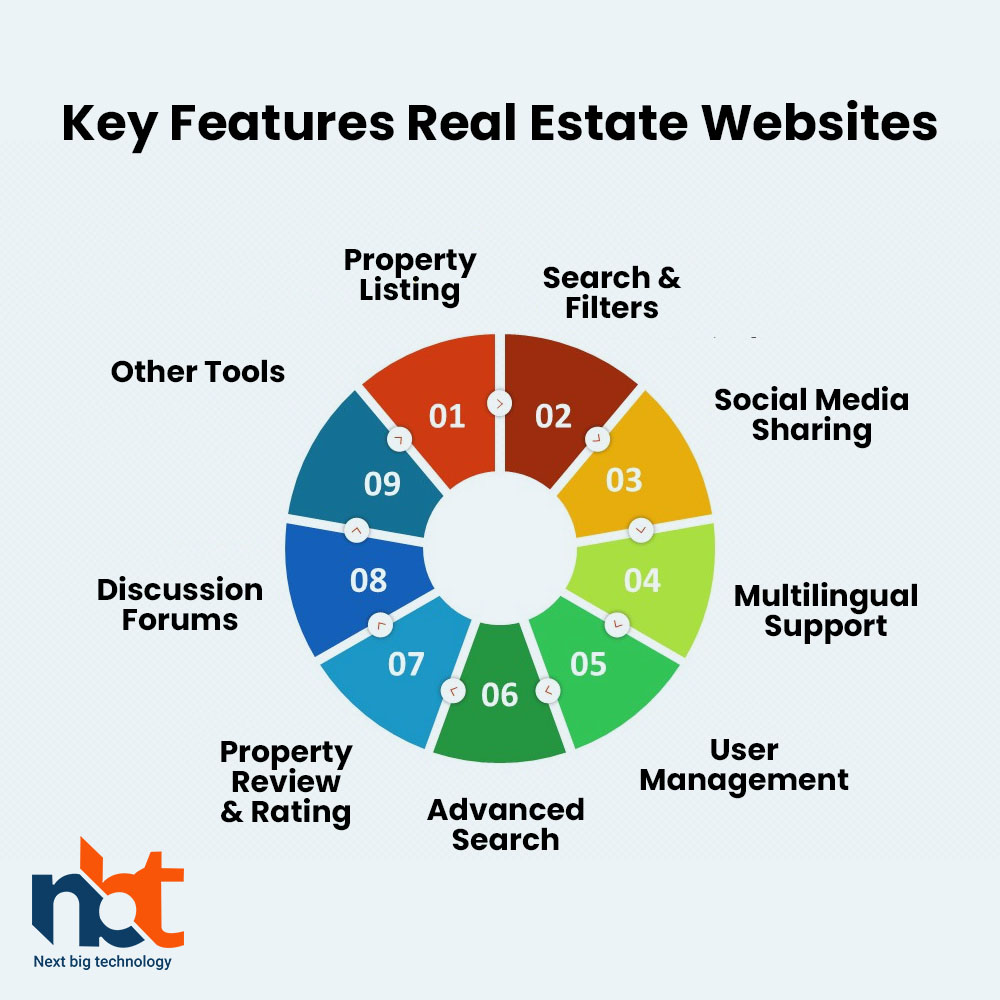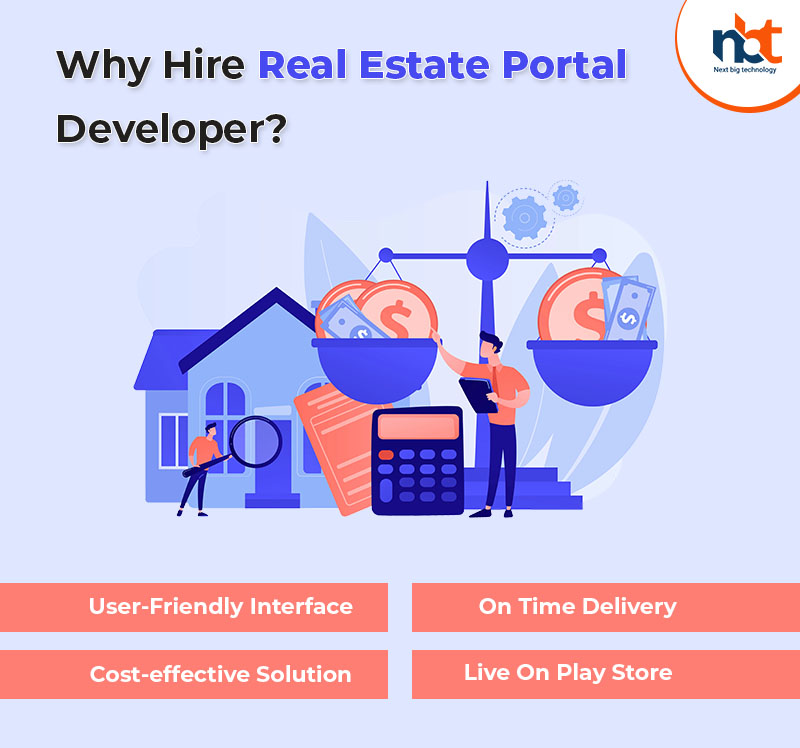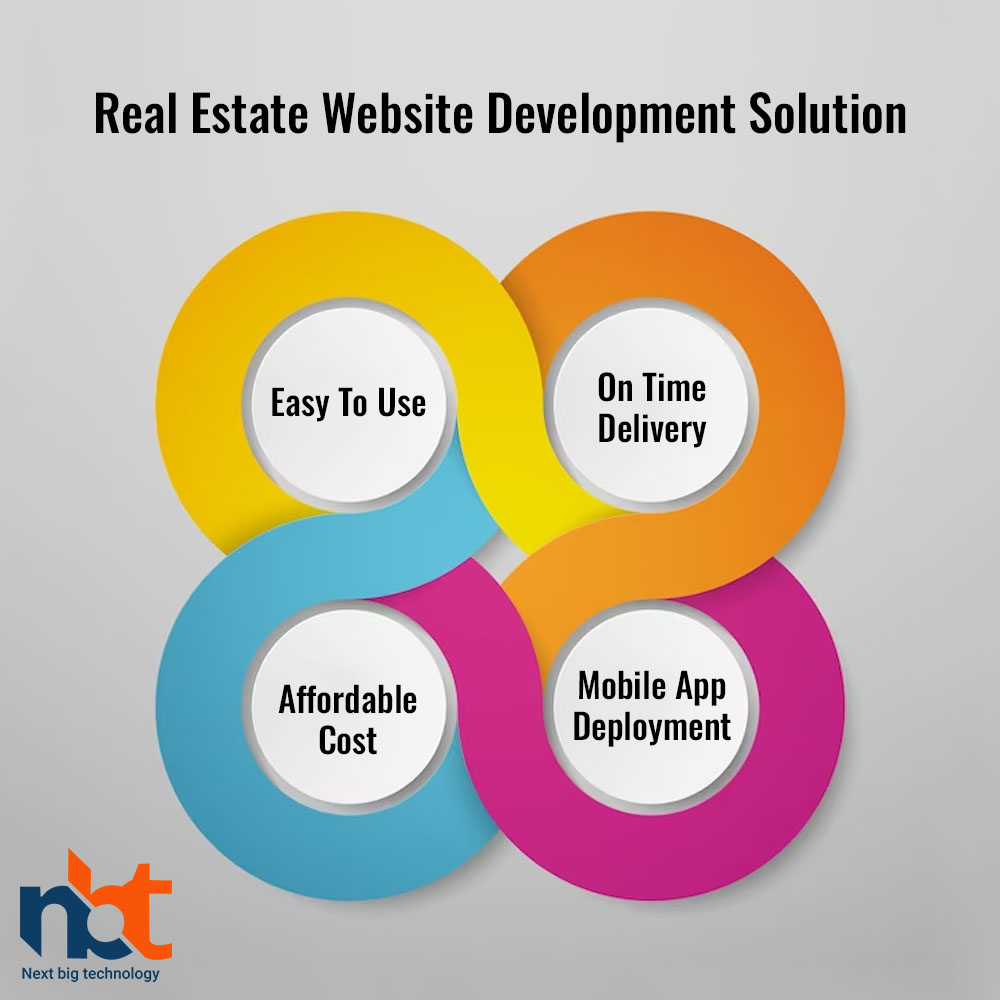Table of Contents
Introduction :
The real estate industry has witnessed a significant transformation in recent years, thanks to advancements in technology. Traditional methods of buying and selling properties have evolved, with real estate portals taking center stage. Real estate portal development has revolutionized the way buyers, sellers, and agents interact, streamlining the entire process and offering a wide range of benefits. In this article, we will delve into the world of real estate portal development and explore its impact on the industry.
The Need for Real Estate Portals
Before we dive into the details of real estate portal development, let’s understand why such platforms have become essential in the industry. In the past, finding a suitable property involved scouring through newspaper listings, contacting multiple agents, and visiting properties in person. This process was time-consuming, tedious, and often led to frustration.
Real estate portals emerged as a solution to these challenges, providing a centralized platform where buyers, sellers, and agents can connect, exchange information, and complete transactions seamlessly. These portals have transformed the way properties are listed, searched for, and sold, offering convenience, efficiency, and an enhanced user experience.
Key Features and Functionality of Real Estate Portals
Real estate portal development involves the creation of a feature-rich platform that caters to the diverse needs of users. Let’s explore some key features and functionality that make real estate portals stand out:
a. Advanced Search Capabilities:
Real estate portals incorporate robust search functionality that allows users to refine their property search based on various criteria, such as location, price range, property type, amenities, and more. This helps potential buyers find properties that match their specific requirements quickly.
b. Comprehensive Property Listings:
Real estate portals enable sellers and agents to create detailed property listings, including high-quality images, videos, 360-degree virtual tours, floor plans, and comprehensive descriptions. These features provide potential buyers with a holistic view of the property, making the decision-making process easier.
c. User Profiles and Reviews:
Real estate portals often include user profiles and reviews, establishing a sense of trust and credibility within the platform. Buyers can view agent profiles, read reviews, and make informed decisions based on the experiences of other users. Similarly, agents can build their reputation and attract potential clients through positive reviews.
d. Messaging and Communication:
Real estate portals facilitate seamless communication between buyers, sellers, and agents. Built-in messaging systems allow users to directly communicate, ask questions, schedule property viewings, and negotiate offers. This real-time interaction streamlines the communication process and eliminates the need for multiple channels of communication.
e. Property Alerts and Notifications:
Real estate portals offer the option to set up personalized property alerts based on specific criteria. Users can receive notifications when new properties that match their preferences become available. This feature ensures that potential buyers are informed promptly, giving them a competitive edge in a fast-paced market.
f. Mortgage and Financing Tools:
Some real estate portals provide tools and resources to assist buyers with mortgage and financing calculations. These features help potential buyers estimate loan amounts, monthly payments, and affordability, making the financial planning process more manageable.
g. Analytics and Insights:
Real estate portals generate valuable data and insights for buyers, sellers, and agents. Buyers can analyze market trends, compare prices, and access historical property data to make informed decisions. Sellers and agents, on the other hand, can track user behavior, monitor listing performance, and refine their marketing strategies based on data-driven insights.
Also Read : Real Estate Website Development Solution
Benefits of Real Estate Portals:
Real estate portal development offers numerous benefits to all stakeholders involved. Let’s explore some of the key advantages:
a. Convenience and Time Savings:
Real estate portals provide convenience and save time for both buyers and sellers. Buyers can browse through a wide range of properties from the comfort of their homes, eliminating the need for physical property visits unless necessary. Sellers can showcase their properties to a broader audience without conducting multiple in-person tours.
b. Increased Market Reach:
Real estate portals expand market reach beyond local boundaries. Buyers can explore properties in different cities, regions, or even countries, opening up opportunities and options that were previously inaccessible. Sellers and agents can attract a larger pool of potential buyers, increasing the chances of a successful sale.
c. Transparency and Credibility:
Real estate portals promote transparency and credibility within the industry. Verified user profiles, reviews, and ratings ensure that users can trust the information provided. This transparency fosters a sense of confidence and encourages more meaningful interactions between buyers, sellers, and agents.
d. Cost Savings:
Real estate portals can reduce costs for both buyers and sellers. Buyers can avoid unnecessary expenses associated with physical property visits, such as travel and accommodation costs. Sellers can save on marketing expenses by leveraging the platform’s built-in marketing tools and wider reach.
e. Efficient Communication and Collaboration:
Real estate portals streamline communication and collaboration between all parties involved. Buyers can directly contact sellers or agents through messaging systems, leading to faster response times and smoother negotiations. Agents can provide personalized assistance and build stronger relationships with their clients.
f. Market Insights and Analysis:
Real estate portals offer valuable market insights and analysis. Buyers can stay informed about market trends, property appreciation rates, and investment opportunities. Sellers and agents can gather data on user preferences, listing performance, and market demand, helping them make informed decisions and tailor their strategies accordingly.
g. Secure Transactions:
Real estate portals prioritize security in transactions. Secure payment gateways ensure that financial transactions are protected. Users can have peace of mind knowing that their personal and financial information is secure within the platform.
Also Read : A Guide to Building Real Estate Website Or Portal Via Easy Listing!
Challenges and Considerations in Real Estate Portal Development:
While real estate portal development brings numerous benefits, there are also challenges and considerations to keep in mind:
a. Data Accuracy and Quality: Ensuring accurate and up-to-date property data is crucial for the success of a real estate portal. Developers must establish processes to verify and validate the information provided by sellers and agents to maintain data quality.
b. User Experience:
Real estate portals should prioritize a seamless user experience. The platform’s design, navigation, and responsiveness play a significant role in attracting and retaining users. A user-friendly interface and intuitive features are essential for a successful real estate portal.
c. Security and Privacy:
Real estate portals deal with sensitive user information, such as personal details and financial data. Implementing robust security measures and complying with data protection regulations are essential to protect user privacy and build trust.
d. Integration with Third-Party Systems:
Real estate portals often need to integrate with various third-party systems, such as property management software, customer relationship management (CRM) tools, and payment gateways. Seamless integration ensures smooth data flow and enhances the overall functionality of the portal.
e. Scalability and Performance:
Real estate portals should be scalable to accommodate increasing user traffic and data volume. Ensuring optimal performance, even during peak times, is crucial for user satisfaction and platform success.
Conclusion:
Also Read : RealEstate Website Design and Development Services With NBT
Real estate portal development has transformed the real estate industry by offering convenience, efficiency, and transparency to buyers, sellers, and agents. These platforms have revolutionized property search, streamlined communication, and provided valuable market insights. With advanced features and robust functionality, real estate portals have become an integral part of the industry, connecting stakeholders across geographical boundaries and simplifying complex transactions.
However, the development of real estate portals also comes with challenges that need to be addressed, such as data accuracy, user experience, security,
Thanks for reading our post “Real Estate Portal Development: Transforming the Real Estate Industry”. Please connect with us to discuss more about Real Estate Portal Development Services.






















